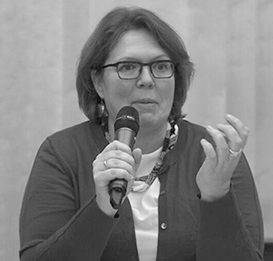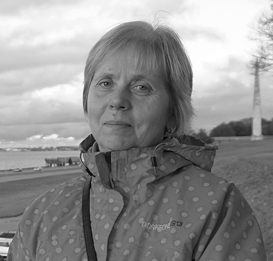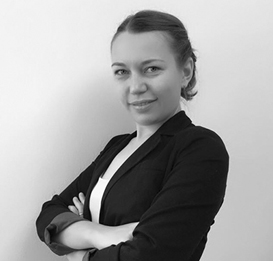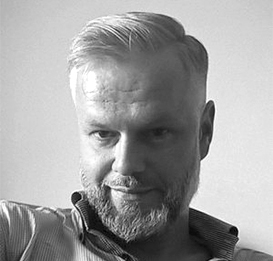Latest news
The Call for Applications for participation in the course ‘Digital Competences for CSOs’ is closed now! We received over 130 applications and would like to thank everyone for your interest to the course! We will inform all applicants before 18th of March 2019.
Objective of the course and target trainee audience
This Digital Competences for CSOs course aims to support CSOs in harnessing the potential of digital technologies to innovate and improve their interaction with their beneficiaries, constituencies and partners, as well as to improve the efficiency of their work and the quality and format of services offered to citizens.
Format, content and timing of the course
This Digital Competences for CSOs course is a blended course: it uses both online and offline capacity building exercises, including an online self-assessment test, three face-to-face workshops, each followed by individual homework and webinars, and online assessment tests.
The Call for Applications for participation in the course ‘Digital Competences for CSOs’ is closed now
1. Online self-assessment tool to define the current digital capacities of applying CSOs and the gaps
2. One week of introductory e-learning course ‘IT for CSOs’, to equip the participants with basic knowledge on the topics to be further explored within the three offline modules (18-23 March)
3. Module #1: IT for CSO Workflow (27 March – 13 April)
- Face-to-face Workshop #1 (1.5 days)
- Online training sessions
- Facilitated by trainers’ homework on the Project’s e-learning hub
- The follow-up webinars
- Online test /practical assignment
4. Module #2: IT for Efficient Communications (15 April – 4 May)
- Online training session
- Face-to-face Workshop #2 (1.5 days)
- Facilitated by trainers’ homework on the Project’s e-learning hub
- The follow-up webinar
- Online test /practical assignment
5. Module #3: IT for Working with Beneficiaries and Stakeholders (6-28 May)
- Face-to-face Workshop #3 (1.5 days)
- Online training sessions
- Facilitated by trainers’ homework on the Project’s e-learning hub
- The follow-up webinars
- Online test /practical assignment
6. Final assignment, results’ assessment and awarding certificate (29 May – 20 June)
2. One week of introductory e-learning course ‘IT for CSOs’, to equip the participants with basic knowledge on the topics to be further explored within the three offline modules (18-23 March)
4. Module #2: IT for Efficient Communications (15 April – 4 May)
- Online training session
- Face-to-face Workshop #2 (1.5 days)
- Facilitated by trainers’ homework on the Project’s e-learning hub
- The follow-up webinar
- Online test /practical assignment
6. Final assignment, results’ assessment and awarding certificate (29 May – 20 June)
Take the online self-assessments - know the level of your digital competences
Rules

FAQ

The selected participants shall participate in all online and offline capacity building activities taking place in their country. Participants from Armenia, Azerbaijan and Moldova will be requested to travel and attend all three Modules in one of the pilot countries where face-to-face trainings are organised (Belarus, Georgia or Ukraine). Those participants who fail to participate in any of the trainings, will be expelled, as the CSOs represented by them.
As this course is designed for CSO executives, only one person per organisation shall participate in all training modules. However, if the applying organisation has a chief communication officer in its staff, this person may participate in Module #2 as a substitute for the organisation’s formal leader and the main applicant.
The total duration of the course is 12 weeks (from March until June 2019). The working languages of the course are English (with simultaneous translation to Russian in Belarus and Ukraine) and Russian.
Cost of participation
Participation in the Digital Competences for CSOs blended course is free. The Project also covers the accommodation of successful applicants for the three offline workshops in Minsk (Belarus), Kyiv (Ukraine) or Tbilisi (Georgia), depending on the applicant’s residence and base of operations, and catering during the workshops (lunches and coffee-breaks).
Local participants (i.e. residing in the country of the training) shall cover all their travel expenses related to the participation in the workshop.
Eligibility criteria
Participation in the course is open to any leader of a civil society organisation from an Eastern Partnership country, shall (s)he and the organisation meet the following eligibility criteria:
1. For a civil society organisation:
- Be located and actively work in one of the EaP countries – Armenia, Azerbaijan, Belarus, Georgia, Moldova or Ukraine;
- Be a formally registered civil society organisation, a not-for-profit media or an informal group of activists;
- Be committed to values associated with respect for fundamental rights;
- Not be involved in actions supporting political parties or actions including proselytism.
2. For a leader of a CSO:
- Be a national and/or a resident in one of the EaP countries – Armenia, Azerbaijan, Belarus, Georgia, Moldova or Ukraine;
- Be a formal leader of the CSO or the informal group of activists;
- Have decision-making authority and powers within the organisation / group in question;
- Have a good command of English and/or Russian.
What is a “blended” course?
A blended learning course combines traditional face-to-face (offline) trainings with online learning. Our course will include online self-assessment tests, 3 face-to-face trainings in one of the pilot countries (Belarus, Georgia or Ukraine), individual homework, a series of webinars and online assessment tests.
How many people will be enrolled in the course?
Because of its blended nature, only 75 representatives of civil society from the six EaP countries will be selected for participation in the course.
What will be the language of the course?
For the online part, participants will be able to choose between English or Russian. The offline trainings will be held in English (in Belarus and Ukraine simultaneous interpretation into the Russian language will be provided). Offline trainings in Georgia will be held in English.
Will I get a certificate?
Yes, all participants having attended all online and offline trainings for all modules and having submitted and passed all assignments, will be awarded a certificate of completion at the end of the course.
Who should I contact if I have technical problems?
If you encounter any technical problems, please contact us as soon as possible, describing your problem and, if possible, including a print screen, at [email protected].
I am not a leader or a formal decision maker in my organization, but I work with the issues to be discussed in the course. Can I apply nevertheless?
Yes, you can, if you are part and parcel of the daily decision-making process in your organisation. Please explain in your motivation letter how your participation in the course will help your organisation and give us more information about your current role and tasks.
What is the deadline for applications?
The deadline for applications is 23:00 CET (Brussels time) on10th March 2019. We kindly advise you to check how this time corresponds to your time zone.
Can I apply to participate in the course if I am part of an informal civic group?
Yes, you can, but in your application form, please include details on how the group works and your involvement in its activities and functioning.
I might not be able to attend some of the offline trainings. Can I still participate?
No, all selected participants must commit to attend all modules of the course – online as well as the three offline trainings. Participants who fail to attend any part of the course will be expelled, as well as the organization he/she represents. Please consult the indicative schedule of the training modules on the website.
Will the organisers cover travel and accommodation costs, related to the three offline trainings for participants from Armenia, Azerbaijan and Moldova?
Yes. For international participants, the organisers will cover three round trips from a participant’s home country (Armenia, Azerbaijan or Moldova) to one of the hosting cities (Minsk, Tbilisi or Kyiv), as well as hotel accommodation for the period of the offline trainings and a small daily allowance to cover other expenses.
Will the organisers cover travel and accommodation costs of the participants from Belarus, Georgia and Ukraine related to their participation in the offline trainings?
The organisers don’t cover local travel costs, i.e. travel within one of the hosting countries – Belarus, Georgia or Ukraine. Only accommodation costs for those participants from the hosting countries who live outside of the capitals (Minks, Tbilisi and Kyiv) will be provided for all three offline trainings.
Who should I contact for other questions?
Questions may be sent by e-mail no later than one working day before the deadline for the submission of applications to [email protected].
How can I know if my digital skills are sufficient to participate in this course?
In order to evaluate your skills and as mandatory part of the application process, you need to do an online self-assessment test before starting the actual application form. The self-assessment consists of two parts: an individual self-assessment looking at your own digital competences and an organisational self-assessment which will evaluate the extent to which your organisation or group has an understanding and is making good use of the available ICT tools. The self-assessment will help you and us understand whether this course is suitable to you.
Is there any schedule by country for the offline trainings?
Yes, the offline trainings of the Module 1 will take place on 27-28 March in Minsk (for selected participants from Belarus), on 29-30 March in Tbilisi (for selected participants from Georgia) and on 1-2 April in Kyiv (for selected participants from Ukraine). Selected participants from Armenia, Azerbaijan and Moldova will be invited to one of the trainings in one of the pilot countries. We will keep you informed on the schedule of the next modules.
Can I use my name written in Cyrillic letter to register at the platform?
No, you can use only Latin letters and numbers for your login and password to create an account. You can fill in the application form later in Russian or English.
I. Participation
1.1 If I am from Belarus, Georgia or Ukraine, can I participate in the training in another country (not in my home country)?
Unfortunately, we will no longer be able to cover any international travel expenses for participants from Belarus, Georgia, and Ukraine to attend the remaining two modules in another pilot country. Thank you for your understanding.
If you are from Belarus, Georgia, and Ukraine and you are not able to attend the training in your country, you can either send someone else from your organization for Module #2 or you can watch the recorded training later on our e-learning hub.
1.2 Can two members of the team participate in the same Module during offline training?
Only one member from your organization can participate in the same Module. As Module #2 will concentrate on specifics of external online communication of your organisation or group, it can be taken either by the main applicant (i.e. you) or by a key communication person in your organisation / group.
1.3 How can we evaluate our knowledge and get a certificate if several members of the organisation take part in the different modules of the course?
Please note that once you complete the course and pass the final assignments, the certificate will be issued on the organisation’s name, with a mention of both individual participants taking part in the course.
1.4 I need an invitation letter for my job, who can help me with?
Please send a request to Denys Bortnikov, Coordinator of the course, at [email protected] with Name and Surname in English for preparing a letter.
II. Training
2.1 What is the working language of the training?
Working languages of the training in Tbilisi is English, in Minsk and Kyiv working language is Russian. Training will be without simultaneous translation.
2.2 Can we watch a recording from the trainings?
Yes, the records of all will be available later on our e-learning hub as video lectures. We will inform you as soon as they are available.
2.3 When do you plan to have the webinars for participants of the course?
There will be two kickoff webinars for Module #2 on April 16: one is in Russian and one is in English. Each will last 90 min maximum. We will provide you with the exact timing; preliminary time is 15:00 (Kyiv time) for the English language webinar, and 17:00 (Kyiv time) for the Russian language webinar.
You are free to choose the language / time, but remember there will be no simultaneous translation, so choose wisely!
2.4 What are the dates for Module #3?
The trainings for Module #3 will be held in the period of 13-20 May 2019. We will inform you about the exact dates of each training after 10th of April 2019.
III. Expenses & transfers
3.1 Can the Project cover my expenses such as a train/bus tickets or gas costs if I use my personal car?
The Project budget covers only international travel expenses for participants from Armenia, Azerbaijan and Moldova. Local travel expenses inside Ukraine, Georgia and Belarus can`t be covered by the Project.
3.2 Do I need to buy tickets by myself?
Yes, if you are a participant from Ukraine, Belarus and Georgia. Flight tickets for participants from Moldova, Armenia and Azerbaijan will be purchased by the Project team.
3.3 How can I get a transfer from airport/railway station to the hotel? Will somebody meet me?
The organizers neither book nor pay for your transfers to/from the airport, as all participants from Moldova, Armenia and Azerbaijan will receive EUR 30 per diems for each working day (EUR 60 in total).
Before the training, you will receive a detailed guide for your city where training will be held. The guide will help you with detailed information about the transfer.
Use the opportunity and share the taxi costs with other participants from your country. Please let us know and we will share contacts of other participants from your country.
3.4 What documents should I send to you for purchasing a flight ticket (for participants from Moldova, Azerbaijan and Armenia)?
If you are a new participant and the Project didn’t purchase tickets for you yet, please send to [email protected] the first page of your international passport (scan or photo).
If you already sent your passport details for participation in Module #1, there is no need to send them again.
IV. Accommodation & meals
4.1 If I prefer vegetarian meals to whom I can direct this request?
Please send a request to Denys Bortnikov, Coordinator of the course, at [email protected]
4.2 If I need accommodation during the training to whom I can direct my request?
Please send a request to Denys Bortnikov, Coordinator of the course, at [email protected] with a note about your dates needed for accommodation















